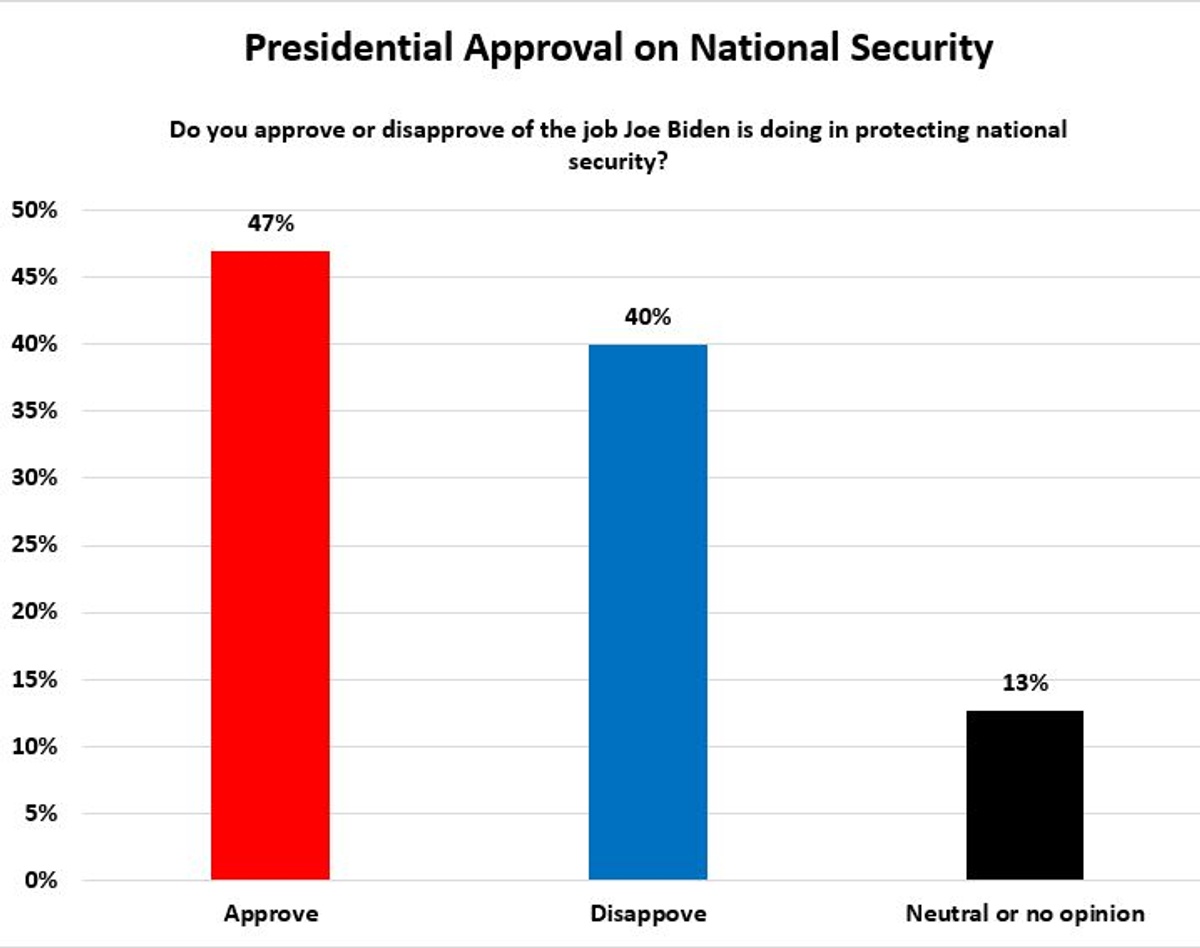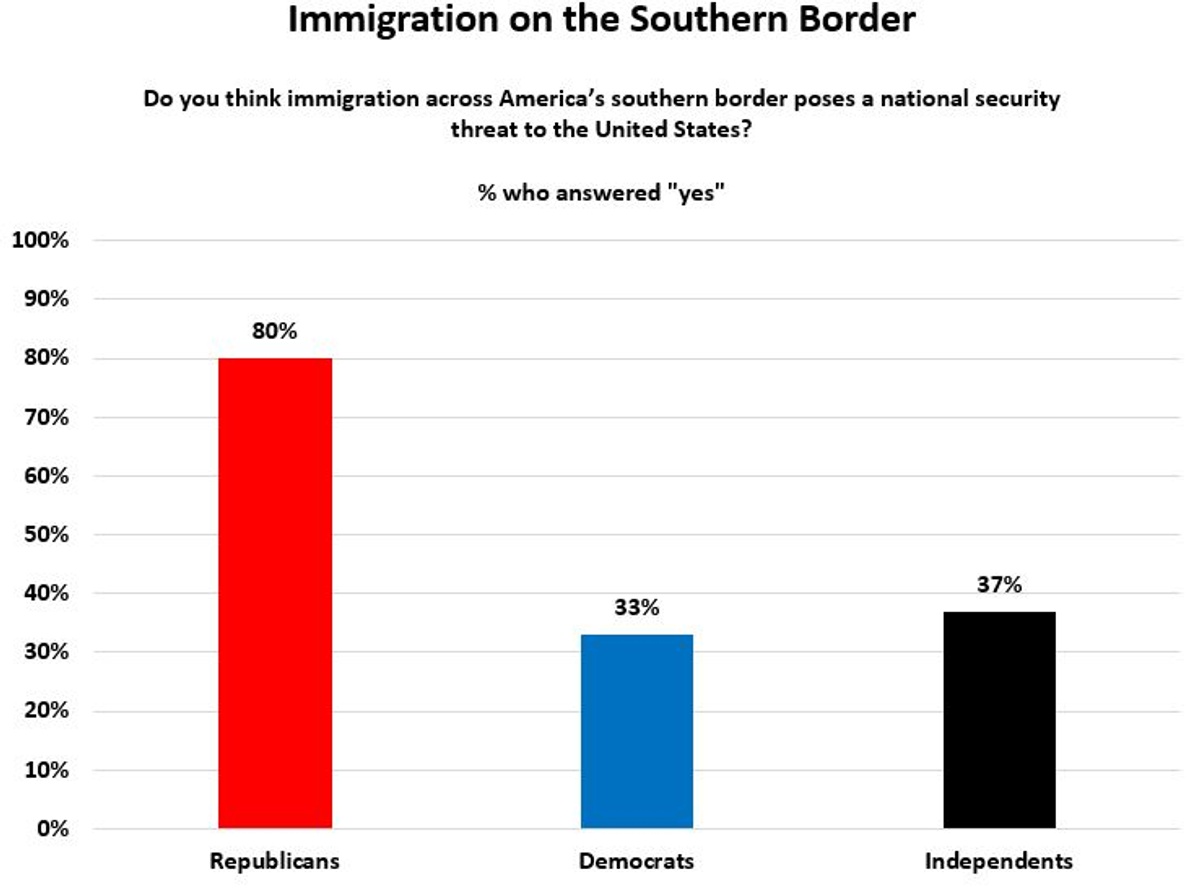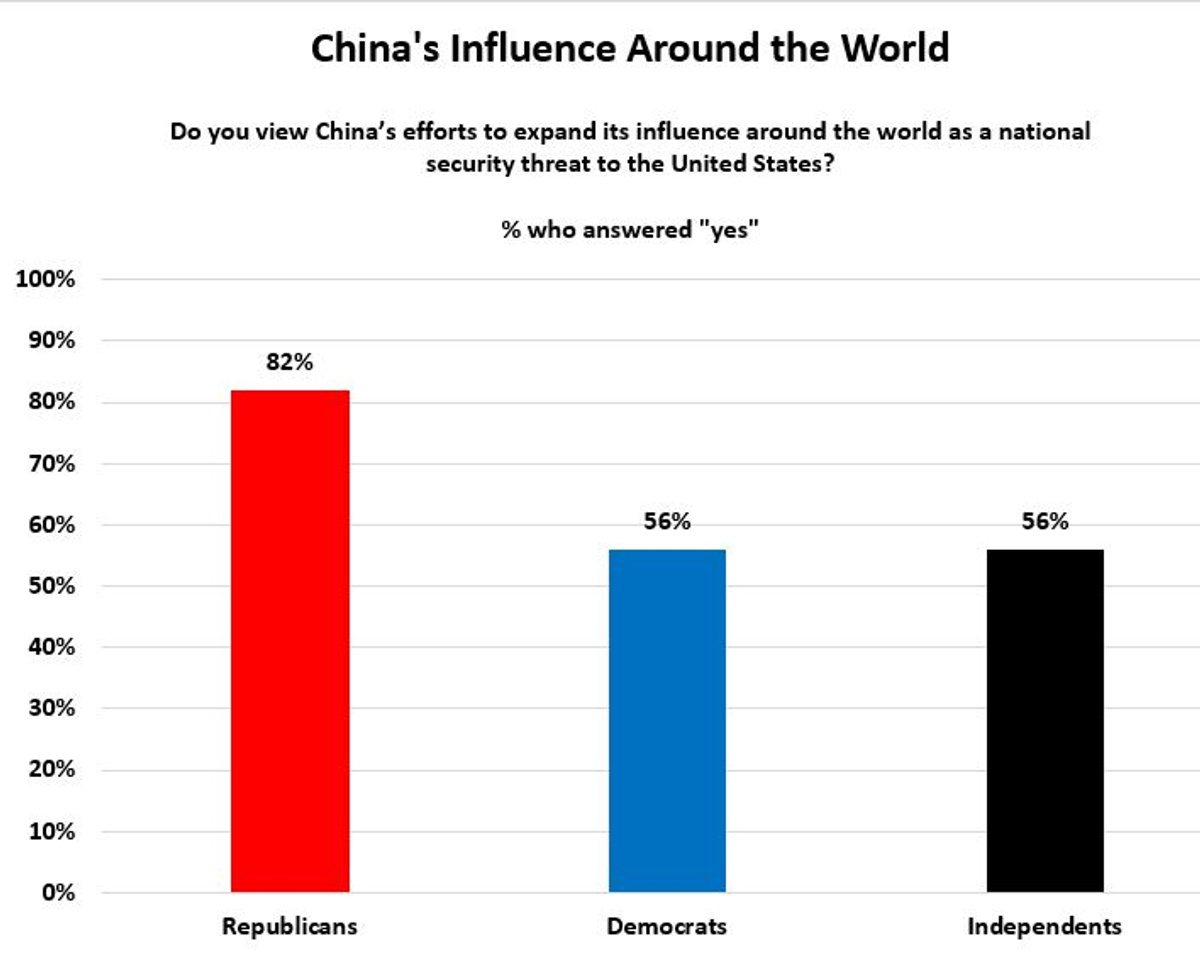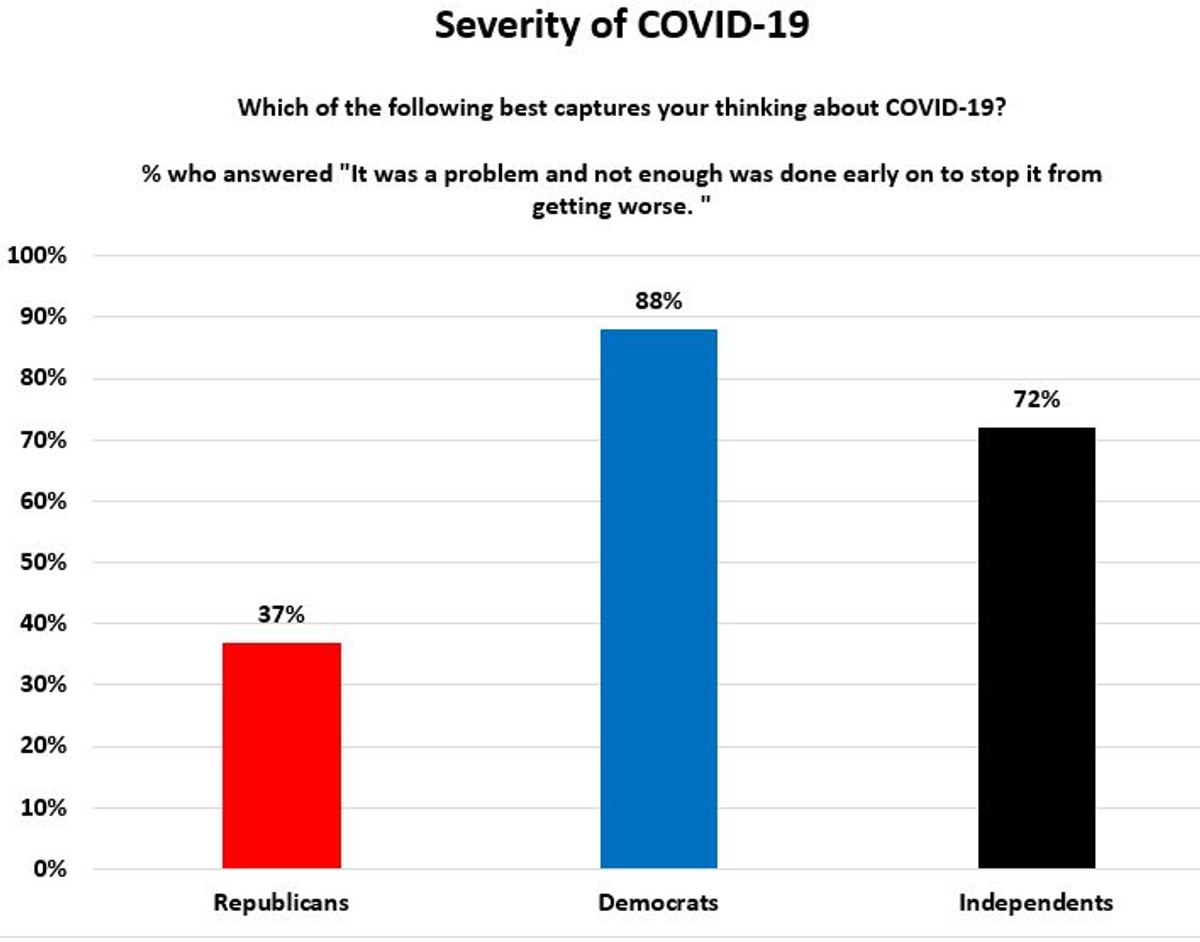The Biden-Harris administration has identified immediate priorities that it argues constitute converging crises, including the COVID-19 pandemic, climate change, racial equity, the economy, health care, immigration, and restoring America’s global standing.1 These priorities are global in scope and have the potential to impact the lives and happiness of every American.
East Carolina University’s (ECU) Center for Survey Research (CSR) conducted a nationwide survey from June 14-19, 2021 of 1,105 U.S. adults (with a credibility interval, similar to a margin of error of ± 3.1 percentage points) to learn more about American perspectives about life, liberty, and happiness. This report focuses on the public’s views about topics and issues related to national security, including the COVID-19 crisis. These matters are relevant to a primary function – even a first duty – of government: To provide protection to citizens from dangers both domestic and foreign. While political debate exists in some instances on how best to handle these threats, identifying and recognizing potential dangers is seemingly “above politics” given that national security affects all Americans. Yet, as the results in this report reveal, American public opinion is polarized along party lines, even when it comes to what is and what is not a threat to national security.
Findings
Approval of President Biden on National Security
o U.S. adults nationwide: 47% approve of the job Joe Biden is doing in protecting national security compared to 40% who disapprove (with 13% who are undecided).
o Party differences: More than three out of four Republicans (77%) disapprove of the job President is doing in protecting national security compared to 8% of Democrats and 23% of independents.2 (Of those who preferred not to report their party identification, 30% disapprove of the job Joe Biden is doing in protecting national security).

Immigration on the U.S. Southern Border
o Republicans: 80% of Republicans in the U.S. adult population think that immigration across America’s southern border poses a national security threat to the United States. Among Republicans who disapprove of how Biden has handled national security, 89% think that immigration across America’s southern border poses a national security threat to the United States.
o Democrats: 33% of Democrats in the U.S. adult population believe that immigration across America’s southern border poses a national security threat to the United States. Among Democrats who approve of how Biden has handled national security, 29% report that immigration across America’s southern border poses a national security threat to the United States. This is 60 percentage points lower than among Republicans who disapprove of Biden’s handling of national security (see above).3

China Expansionism
o Republicans: 82% of Republicans in the U.S. adult population think that China’s efforts to expand its influence around the world is a national security threat to the United States. Among Republicans who disapprove of how Biden has handled national security, 86% view China’s efforts to expand its influence around the world as a national security threat to the United States.
o Democrats: 56% of Democrats in the U.S. adult population believe that China’s efforts to expand its influence around the world is a national security threat to the United States. Among Democrats who approve of how Biden has handled national security, 57% view China’s efforts to expand its influence around the world as a national security threat to the United States. This is 29 percentage points lower than among Republicans who disapprove of Biden’s handling of national security (see above).

COVID-19
o Republicans: 37% of Republicans in the U.S. adult population think that COVID-19 was a problem and not enough was done early on to stop it from getting worse, compared to 49% who think government overreacted to COVID-19 and 14% who do not see it as a problem at all. Among Republicans who disapprove of how Biden has handled national security, 31% view it as a problem and that not enough was done early on to stop it from getting worse, compared to 58% who think government overreacted to COVID-19 and 10% who do not see it as a problem at all.
o Democrats: 88% of Democrats in the U.S. adult population believe that COVID-19 was a problem and not enough was done early to stop it. Among Democrats who approve of how Biden has handled national security, 89% view it as a problem and that not enough was done early on to stop it from getting worse. This is 58 percentage points higher than among Republicans who disapprove of Biden’s handling of national security (see above).

Notes
1. The White House, “The Biden-Harris Administration Immediate Priorities,” https://www.whitehouse.gov/priorities/ accessed 7/14/2021.
2. Republicans include independents who lean towards the Republican Party. Democrats include independents who lean towards the Democratic Party. Independents are those who do not lean toward either the Republican Party or Democratic Party.
3. For the results on independents and those who opted not to answer their party identification, see the charts displayed in this report.
*Funding for this report was provided by the ECU Center for Survey Research, The Department of Political Science, and The Oak Foundation.
Methodology
This report was based on a mixed mode of 1,105 responses from telephone and the Internet. Respondents contacted by telephone came from a nationwide random sample of adults (18 years or older) drawn from the 50 states and the District of Columbia. Live calls (N=90) were conducted and completed by Dynata (https://www.dynata.com/). Of those 90 completed live calls, 84 came from cell phones and 6 from landline phones. An additional 523 completed telephone calls came from an Interactive Voice Response (IVR) system of landline phones. The remaining 492 respondents completed this survey through an online panel provided by Lucid (https://luc.id/). To ensure data quality for the online portion, the questionnaire included a validity check question to confirm that respondents were reading the questions carefully before answering them. The combined sample of respondents were weighted by age, gender, race, education, 2020 voting behavior modeling, and mode. The credibility interval, much like a margin of error, is plus or minus 3.1 percentage points and takes design effects into consideration. For additional information, please see the ECU-CSR’s AAPOR Transparency Initiative report.






